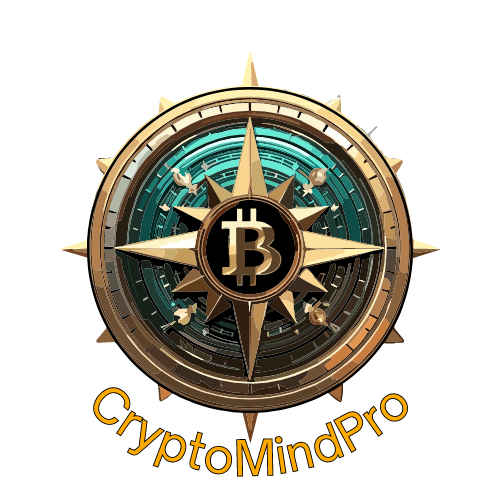In an era where digital waves have swept across every facet of our lives, the music industry hasn’t been immune to this tsunami of change.
The traditional tune of the music industry has often hit a discordant note with many.
From artists shackled by exploitative contracts to fans distanced from their musical idols, the old system played a melody of control, leaving creativity and fair compensation on a desolate island.
However, a new rhythm is in the air, and it’s resonating with the beat of blockchain.
The harmony between blockchain and music industry is scripting a new song of freedom, transparency, and direct artist-to-fan connections.
This disruptive technology is tuning the industry to a melody of innovation, promising a fair stage for all players—be it the maestros or the budding virtuosos.
This article orchestrates the journey of blockchain’s crescendo in the music arena, from its genesis to the symphony of opportunities it unveils.
As you delve deeper, the narrative will unveil how blockchain is not just a technology, but a maestro ready to conduct a new era of musical experience.
This isn’t merely about notes and rhythms; it’s about orchestrating a fair and transparent stage where every artist gets a chance to play their tune, and every fan gets a closer seat to the show.
Ready to tune into the new rhythm?
Key Takeaways
Takeaway Details Direct Artist-to-Fan Channels Blockchain facilitates direct engagement, cutting out middlemen. Fair Compensation Through smart contracts, artists receive fair and immediate compensation. NFTs in Music NFTs are carving a new path for ownership and monetization of music and arts. Challenges Ahead Scalability, copyright issues, and mass adoption are key hurdles to overcome. Future Prospects With continuous innovation, blockchain could reinvigorate the music industry landscape.
Blockchain: A Primer
The realm of cryptocurrencies and blockchain technology can appear as an intricate orchestra to a newcomer.
However, every complex symphony can be broken down into individual notes and chords.
Here, we’ll demystify the essence of blockchain, resonating with the rhythm of simplicity and clarity, ensuring every reader, whether a seasoned cryptophile or a newcomer, finds the tune relatable and enriching.
What is Blockchain?
At its core, blockchain is a decentralized and distributed digital ledger used to record transactions across multiple computers so that any involved record cannot be changed retroactively, without the alteration of all subsequent blocks.
This transparency and immutability make blockchain a robust platform for various applications, far beyond its initial cradle of cryptocurrency.
- Transparency: Every transaction is recorded on a public ledger which can be accessed by anyone, establishing a clear trail of all activities.
- Decentralization: Unlike centralized systems, where a single entity has control, blockchain operates on multiple nodes (computers), ensuring no single point of failure or control.
- Immutability: Once a transaction is recorded, it cannot be altered or deleted, ensuring the integrity of the data.
Why is Blockchain a Game Changer?
Blockchain is not merely a technology; it’s a paradigm shift, a new rhythm to which modern industries can synchronize for enhanced transparency, efficiency, and trust.
Here’s why blockchain is a captivating tune:
- Trustless Transactions:
- Enables transactions without the need for trusted intermediaries, reducing costs and increasing efficiency.
- Smart Contracts:
- Self-executing contracts with the terms directly written into code, eliminating ambiguity and ensuring automatic execution upon meeting the terms.
- Tokenization:
- The process of converting rights to an asset into a digital token on a blockchain, opening avenues for fractional ownership and easier transfer of assets.
The rhythm of blockchain resonates with endless possibilities, not just in the financial sector, but across diverse fields.
Its harmony with the music industry is a promising tune that could redefine the traditional models, fostering a fair, transparent, and direct connection between artists and audiences.
Blockchain’s Crescendo in Various Industries
Blockchain has not limited its melody to a single genre; instead, it’s orchestrating a new era across various industries:
- Finance:
- Redefining transactions, reducing fraud, and enhancing transparency.
- Supply Chain:
- Streamlining processes, ensuring authenticity, and reducing counterfeits.
- Healthcare:
- Ensuring the integrity and confidentiality of health records.
- Real Estate:
- Simplifying transactions, reducing fraud, and enhancing transparency.
And the list goes on, resonating with the tune of innovation and trust.
The Symphony of Blockchain and Music
As we venture further into the melody of blockchain and music industry, the narrative will unveil how this technology is not merely an instrument but a maestro ready to conduct a new era of musical experiences.
It’s a fusion that promises to address some of the chronic challenges that have long plagued the musical realm, tuning the industry to a melody of fairness, transparency, and direct engagement.
Are you ready to delve deeper into this harmonious duet?
The next section will orchestrate the harmony between blockchain and music, a tune that promises to be both enlightening and captivating.
Blockchain Meets Music
The resonance between blockchain and music industry is a sweet serenade to the ears of artists and enthusiasts alike.
It’s an overture to a new era where the rhythm of fairness, transparency, and innovation harmonize into a melody that promises to redefine the music industry’s landscape.
As we delve into this symphony, the notes of blockchain’s features play a captivating tune that promises to address some long-standing discords in the musical realm.
Addressing the Dissonance
The traditional music industry model often leaves artists at the mercy of record labels, producers, and other intermediaries.
This old tune plays a rhythm of control and exploitation, often leaving the creator’s pockets empty while these middlemen walk away with hefty paychecks.
Blockchain, with its decentralized and transparent nature, steps in to retune this discord by:
- Fair Royalty Payments:
- With blockchain, every play, download, or purchase can be tracked transparently, ensuring fair royalty payments to the artists.
- Direct Artist-to-Fan Channels:
- Blockchain facilitates direct engagement between artists and fans, cutting out the middlemen, and fostering a community-centered ecosystem.
- Anti-Piracy Measures:
- The immutability of blockchain records helps in combating piracy and ensuring authentic distribution of music.
The Rhythm of Smart Contracts
Smart contracts are self-executing contracts with the terms directly written into code.
In the context of music, they could revolutionize the way artists and service providers interact and transact with each other.
- Automatic Royalty Distribution:
- As soon as a song is streamed or purchased, smart contracts can ensure immediate and fair distribution of royalties.
- Transparent Agreements:
- The terms of agreements between artists, producers, and others can be made transparent, ensuring fairness and adherence.
NFTs: A New Tune in Ownership and Monetization
Non-fungible tokens (NFTs) are unique digital assets verified using blockchain technology, representing ownership or proof of authenticity of a unique item or piece of content. In the music industry, NFTs have struck a chord by offering:
- Digital Ownership:
- Artists can mint unique versions of their music or albums as NFTs, providing fans with authentic digital ownership.
- Monetization Opportunities:
- NFTs open new revenue streams for artists through direct sales, auctions, and resales.
Real-world Resonance: Blockchain in Action
Blockchain’s melody is not just theoretical; real-world applications are already hitting the right chords in the music industry.
Platforms like Audius and Ujo Music are leading the way, offering decentralized platforms where artists can share their music directly with the audience, sans intermediaries.
Harmonizing the Future
As the notes of blockchain harmonize with the rhythm of the music industry, a new melody of opportunities, fairness, and creativity emerges.
The next section will delve deeper into real-world applications, offering a glimpse into the captivating harmony of blockchain and music, a tune worth lending an ear to.
The symphony between blockchain and music industry is just beginning, and as it unfolds, it promises to compose a narrative of empowerment, innovation, and direct community engagement.
Are you ready to explore how this duet is already reshaping the real world?
The next section will take you on a tour through the practical implementations that are tuning the industry to a new melody of transparency and fairness.
Real-world Applications
The melody of blockchain and music industry transcends the theoretical realm and resonates in real-world applications.
This synergy has birthed platforms that embody the blockchain principles of transparency, fairness, and direct engagement.
As we delve into these platforms, the rhythm of blockchain’s transformative potential in the music industry becomes more palpable, offering a glimpse into a future where artists and fans dance to a tune of empowerment and engagement.
Ujo Music: Direct Sales Platform
Ujo Music, a pioneering platform in blending blockchain with music, orchestrates a direct channel for artists to sell their music to fans. By doing so, it skips the tune of intermediaries, ensuring artists receive a fair share of the revenue.
- Smart Contracts: Automates royalty payments, ensuring that artists are compensated fairly and promptly for every purchase.
- Transparency: Provides a transparent platform where artists and fans can interact and transact openly.
Audius: Decentralized Music Streaming
Audius harmonizes blockchain’s decentralized ethos with music streaming. It’s a tune that resonates with over 5 million listeners and 100,000 artists, offering a decentralized alternative to mainstream music streaming platforms.
- Direct Fan Engagement: Allows artists to share their music directly with fans, fostering a close-knit community.
- Tokenized Incentives: Rewards artists and listeners with tokens, creating a self-sustaining ecosystem of engagement and support.
Catalog: Ownership and Monetization through NFTs
Catalog harnesses the power of Non-Fungible Tokens (NFTs) to provide artists with a platform to mint, price, and sell their music directly to their audience.
- Digital Ownership: Artists can mint unique versions of their music or albums as NFTs, providing fans with authentic digital ownership.
- New Monetization Avenues: Opens up new channels of revenue for artists through direct sales, auctions, and resales.
The Crescendo of Innovation
The innovation doesn’t stop here. Many other platforms are tuning their strings to the rhythm of blockchain, ready to play their part in this harmonious fusion between blockchain and music industry.
The crescendo of innovation is loud and clear, promising a shift from an industry dominated by a few to one where artists are at the forefront, a tune worth lending an ear to.
As we venture further, the narrative will explore the road ahead, examining the hurdles and potential solutions in merging blockchain with music.
It’s a journey of discovering how the symphony of blockchain in music, with its potential for transparency and empowerment, is a tune worth lending an ear to.
Ready to explore the challenges and envision the future of a blockchain-powered music industry?
The next section will orchestrate the hurdles and the potential solutions that could tune the industry to a melody of fairness and transparency.
The Road Ahead
The symphony of blockchain and music industry is a melodious tune that resonates with potential and promise. However, like any pioneering venture, it comes with its set of hurdles and discordant notes.
As we navigate through these challenges, the ethos of innovation coupled with the collaborative spirit of the music community, harbors hope for orchestrating solutions that tune the industry to a melody of fairness, transparency, and creativity.
Scalability Issues
The crescendo of blockchain in the music industry demands a robust infrastructure capable of handling high transaction volumes and user activities without hitting a discordant note.
- High Transaction Throughput: The ability to process a high volume of transactions swiftly is crucial for real-time royalty distributions and other blockchain-based functionalities in the music industry.
- Network Congestion: As the number of users increases, network congestion can become a bottleneck, affecting the user experience and efficiency of blockchain platforms.
Copyright Complexities
Copyright issues strike a complex chord in the fusion of blockchain and music industry. The decentralized nature of blockchain poses challenges in managing copyright and ensuring compliance with existing laws.
- Clearance and Licensing: Establishing a clear framework for copyright clearance and licensing is essential to prevent legal discord and ensure fair compensation for artists.
- Cross-Border Copyrights: With music being a global language, cross-border copyright management becomes a significant challenge that needs harmonizing solutions.
Mass Adoption
The melody of blockchain in music is a new tune that requires a broader audience to appreciate and engage.
- User Education: Demystifying blockchain and educating artists and audiences on its benefits is crucial for fostering acceptance and adoption.
- User-Friendly Platforms: Developing user-friendly platforms that simplify the blockchain experience is essential to entice more artists and fans to dance to this new tune.
Harmonizing Solutions
The hurdles are significant, yet not insurmountable. Continuous dialogue among stakeholders, coupled with relentless innovation, can script a narrative of solutions that resound with promise and potential.
The essence of blockchain – transparency, fairness, and decentralization – strikes a chord with the inherent ethos of music, making this fusion a promising venture worthy of exploration and engagement.
As we conclude this expedition into the resonance between blockchain and music, the melody of opportunity, despite the challenges, plays a hopeful tune.
The next section will recapitulate the key takeaways from this narrative, ensuring the rhythm of blockchain’s potential in the music industry rings loud and clear in the minds of the readers.
Are you ready for a recap that not only reiterates the transformative potential of blockchain but also inspires to explore this harmonious duet further?
The conclusion awaits to serenade you with the essence of blockchain’s melody in the music industry.
Frequently Asked Questions
Here are some common questions and their answers regarding the fusion of blockchain and music industry:
| Question | Answer |
| How does blockchain benefit the music industry? | Blockchain brings transparency, fairness, and direct artist-to-fan engagement to the music industry. It facilitates real-time royalty payments, anti-piracy measures, and authentic digital ownership through Non-Fungible Tokens (NFTs). |
| What are smart contracts and how do they work in the music industry? | Smart contracts are self-executing contracts with the terms directly written into code. In the music industry, they automate royalty payments, ensuring artists are fairly compensated as soon as their music is streamed or purchased. |
| How do NFTs contribute to the music industry? | NFTs provide a platform for artists to mint unique versions of their music, offering authentic digital ownership to buyers. They open up new monetization channels for artists through direct sales, auctions, and resales. |
| What are some real-world applications of blockchain in the music industry? | Platforms like Ujo Music, Audius, and Catalog are real-world applications of blockchain in the music industry, offering decentralized platforms for music sales, streaming, and digital ownership. |
| What challenges face blockchain integration in the music industry? | Scalability issues, copyright complexities, and the need for mass adoption are significant challenges. They require robust infrastructure, clear copyright frameworks, user education, and user-friendly platforms for resolution. |
| How can I learn more about blockchain and its applications in the music industry? | You can delve deeper into the Blockchain Unleashed section on CryptoMindPro to explore various articles and insights on blockchain and its fusion with the music and other industries. |
| Are there any platforms where I can buy or stream music on a blockchain? | Yes, platforms like Ujo Music for direct sales, Audius for decentralized streaming, and Catalog for owning and monetizing music through NFTs are blockchain-based platforms reshaping the music industry. |




